The views expressed in our content reflect individual perspectives and do not represent the authoritative views of the Baha'i Faith.
How does history work? When historians look back over the ages of humanity, how do they explain our progress—or lack of it? What forces move history forward?
Here’s the main question, which subsumes all other questions about the study of history: how do we make sense of the past?
Answering these complex questions about human history means coming up with a comprehensible, rational explanation of events, structures, and processes that can tell us how and why we graduated from caves to high-rises.
Historians have tried to answer those questions for a very long time—all the way back to the ancient Greek philosophers. Literally hundreds of theories and philosophies of history have been proposed over the centuries. Most university-level survey courses in world history now condense all those theories into six main categories:
- The Cyclical Theory, where history repeats itself without making any real progress
- The Linear Theory, where the world constantly improves and progresses
- The Great Man Theory, which says history is moved forward by great men
- The Everyman or People’s Theory, which says history is shaped by ordinary people
- The Geographic Theory, which posits geography as destiny
- The Marxist Theory, which says history is the ongoing story of class struggle.
In this series of essays, we’ll take a brief look at the truths that underlie all six of those interesting theories, and see if we can explore which ones best fit our contemporary understanding of human history. We’ll also look at a seventh unique theory, first presented in the Baha’i teachings, that challenges every existing perception of history and takes a completely different path to explain the evolution of human civilization.
Ready? Here we go, then—we’ll start at the beginning.
The cyclical theory of history basically says that people invariably repeat a series of recurring patterns. The myths of many ancient cultures promoted this non-linear conception of history and time; saying that history cycled back and forth, again and again, between alternating Dark and Golden Ages. The cyclical theory says that civilizations rise and fall for the same primary reasons—in other words, history endlessly repeats itself. Like nature, various human societies pass through identical patterns of development in periodically repeated cycles.
Greek historians like Herodotus, Thucydides and Polybius believed in the cyclical theory of history, where no real progress occurs—in fact, progress, according to this concept, is a myth:
History is a wheel, for the nature of man is fundamentally unchanging. What has happened before will perforce happen again. – George R.R. Martin
What is constant in history is greed and foolishness and a love of blood and this is a thing that even God—who knows all that can be known—seems powerless to change. – Cormac McCarthy
The cyclical theory holds that human nature—whether good or bad—always determines history. Those who support the cyclical theory would say that human nature never changes; and therefore history can’t, either, so it records many repetitive rounds of man’s achievement and folly.
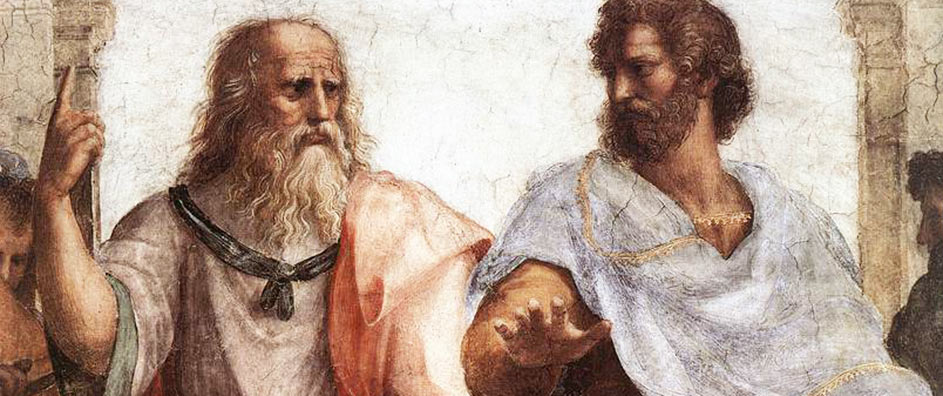
Plato and Socrates
The great Greek philosophers—Socrates, Plato and Aristotle—all subscribed to some variant of the cyclical theory of history. In ancient Athens, though, you can probably understand why—human society had not yet progressed much, and stood at the very beginnings of modern civilization. Still plagued by slavery, constant warfare and very low educational rates, Athenian culture witnessed the first flowering of western civilization—but it still had a very long way to go.
Perhaps that helps explain the cyclical theory of history, which didn’t require a sophisticated answer to the question about making sense of the past. Instead, it relied on what was known at the time about human character, and recognized the fact that all people have the same essential choices—to be noble or base, good or bad, beneficial or harmful. Those choices, the cyclical theory holds, determine human history and always will.
The Baha’i teachings do attribute some truth to the cyclical theory, because Baha’i ideals focus on our inner character traits and our virtues or lack of them. Baha’is believe that those traits, in aggregate, can have a profound impact on the wider civilization:
In short, man is endowed with two natures: one tendeth towards moral sublimity and intellectual perfection, while the other turneth to bestial degradation and carnal imperfections. If ye travel the countries of the globe ye shall observe on one side the remains of ruin and destruction, while on the other ye shall see the signs of civilization and development. Such desolation and ruin are the result of war, strife and quarrelling, while all development and progress are fruits of the lights of virtue, co-operation and concord. – Abdu’l-Baha, Selections from the Writings of Abdu’l-Baha, p. 288.
But the cyclical theory of history doesn’t entirely fit the model of history found in the Baha’i teachings, because Baha’is definitely believe that human society can make progress:
Human education, however, consists in civilization and progress, that is, sound governance, social order, human welfare, commerce and industry, arts and sciences, momentous discoveries, and great undertakings, which are the central features distinguishing man from the animal. – Abdu’l-Baha, Some Answered Questions, newly revised edition, p. 9.
In the next essay in this series, we’ll examine the Linear Theory of history, the idea that our world constantly improves and progresses.
You May Also Like
Comments







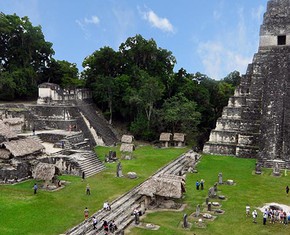


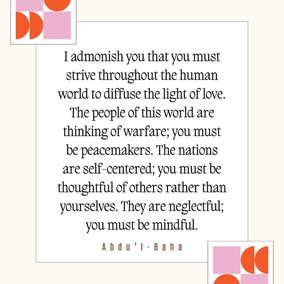
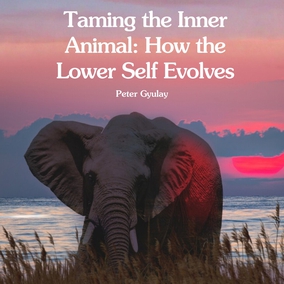


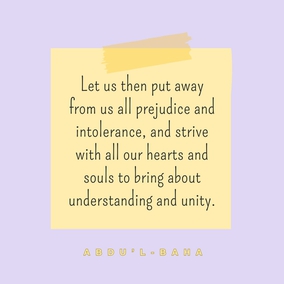
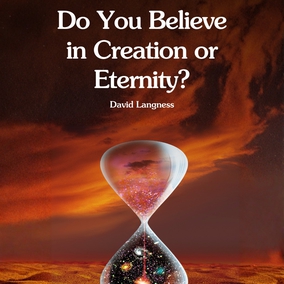

these theories really decide a person's outlook and "world view",
whether she/he will lean toward
optimism, pessimism, detachment,
anxiety, or apathy. I think many
people obviously believe the cyclical
idea, or even one of inevitable degeneration. It's nice to hear that
challenged, like in Steven Pinker's
book "The Better Angels of Our Nature"!